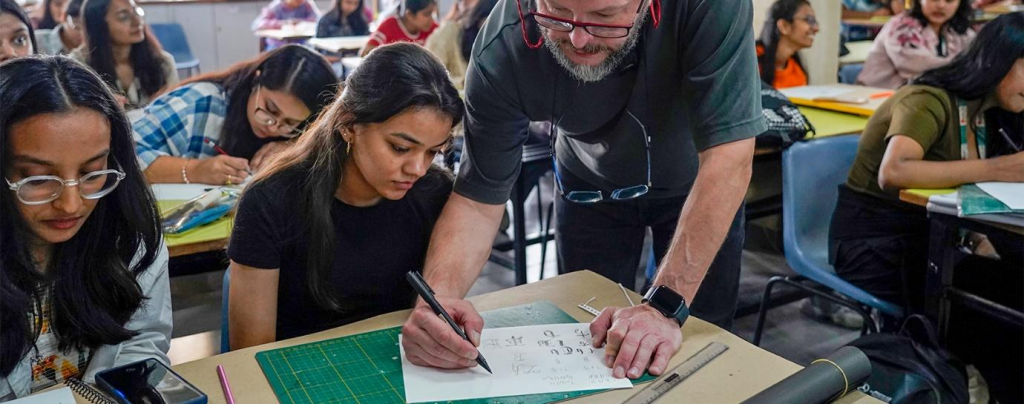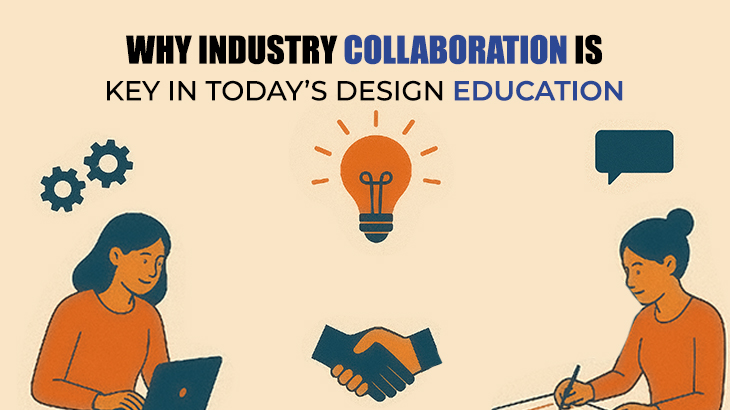Design today is no longer confined to the classroom. It is dynamic, fast-evolving, and deeply influenced by real-world challenges and opportunities. For students to thrive in this ecosystem, design education must go beyond theory and embrace industry collaboration. This integration ensures that learning is practical, market-relevant, and globally competitive.
ARCH College of Design & Business has been at the forefront of this movement, shaping the future of design education through meaningful partnerships at national, state, and international levels.
Bridging Academia and Industry
One of the most significant challenges in higher education is the gap between what students learn and what the industry requires. In design, this gap can hinder creativity, innovation, and employability. Industry collaborations bridge this divide by exposing students to live projects, internships, workshops, and mentorship programs with professionals. Industry collaborations with institutions are not just add-ons but integral to the curriculum. Students engage in real-time problem-solving, interact with industry mentors, and learn to balance creativity with business realities. Whether in fashion, jewellery, interior, or graphic design, this approach equips them with future-ready skills.

National-Level Collaborations
National partnerships are critical in bringing students closer to the pulse of the Indian design industry. ARCH has worked with bodies like FICCI, CII, and various Export Promotion Councils, opening doors for students to participate in national-level projects and exhibitions. Collaborations with artisan clusters and MSMEs have further strengthened students’ understanding of India’s rich craft heritage. These interactions not only provide hands-on learning but also encourage research and innovation that honour tradition while embracing modernity.
State Governmental Collaborations
Collaborations with state government initiatives focused on crafts, handlooms, and skill development. From hosting design-thinking workshops to celebrating Handlooms Day with artisan communities, ARCH actively engages students in preserving and reviving local crafts. Students gain the chance to work on government-supported projects that highlight sustainability, heritage, and innovation—values that are increasingly shaping the design industry. These initiatives ground students in their local context while preparing them for national and international opportunities.
ARCH College’s recent collaboration with the state government, with RAJEEVIKA, is offering internship opportunities for students.

International Collaborations
In today’s interconnected world, global exposure is no longer optional for design students—it’s essential. International collaborations create academic pathways with leading universities abroad, allowing students to complete parts of their education in different cultural and professional settings. Student exchange programs, global design competitions, and international study opportunities provide invaluable exposure that expands horizons beyond the classroom. Such collaborations not only help students adapt to global standards but also encourage them to preserve and reinterpret their own cultural identities. For many design learners, these experiences become truly transformative, broadening their perspectives and shaping them into confident, globally aware design thinkers.
Through its collaboration with the European Commission, ARCH joined the Co-designing Learning for Impact-focused Entrepreneurship project. In February this year, ARCH students participated in the Global Erasmus+ Co-Life Project in Goa, attending the International Roundtable Conference and engaging in a hands-on Design Thinking & Learning by Doing workshop.

Skill Development & Entrepreneurship
A crucial outcome of industry collaboration is the nurturing of entrepreneurial spirit. Today’s designers are not just creators but also innovators and business leaders. The institution actively supports student-led ventures through its incubation programs and connects them with mentors from both industry and government. This ecosystem helps students transform ideas into start-ups, ensuring that they graduate not just with degrees but with the confidence to create opportunities for themselves.
Success Stories & Outcomes
The impact of these collaborations is best seen in the stories of ARCH students. From participating in international craft projects in Paris to showcasing sustainable fashion collections with export councils in India, students have repeatedly demonstrated how industry-linked education drives success. Many alumni have launched their brands, worked with global fashion houses, or contributed to heritage revival initiatives. These success stories reinforce the value of partnerships in shaping holistic design professionals.
The Future of Design Education
As design continues to influence industries worldwide, the need for robust academic-industry partnerships will only grow. The future of design education lies in blending creativity with practical application, cultural heritage with global innovation, and academic learning with professional expertise.
Industry collaboration is not just an advantage—it is essential in today’s design education. It provides students with the exposure, skills, and confidence to flourish in a competitive world. ARCH College of Design & Business stands as a model for this approach, weaving together national, state governmental, and international partnerships into its educational fabric. For aspiring designers, choosing a college like ARCH means stepping into an ecosystem where education and industry walk hand in hand, preparing them to design the future with vision and purpose.
